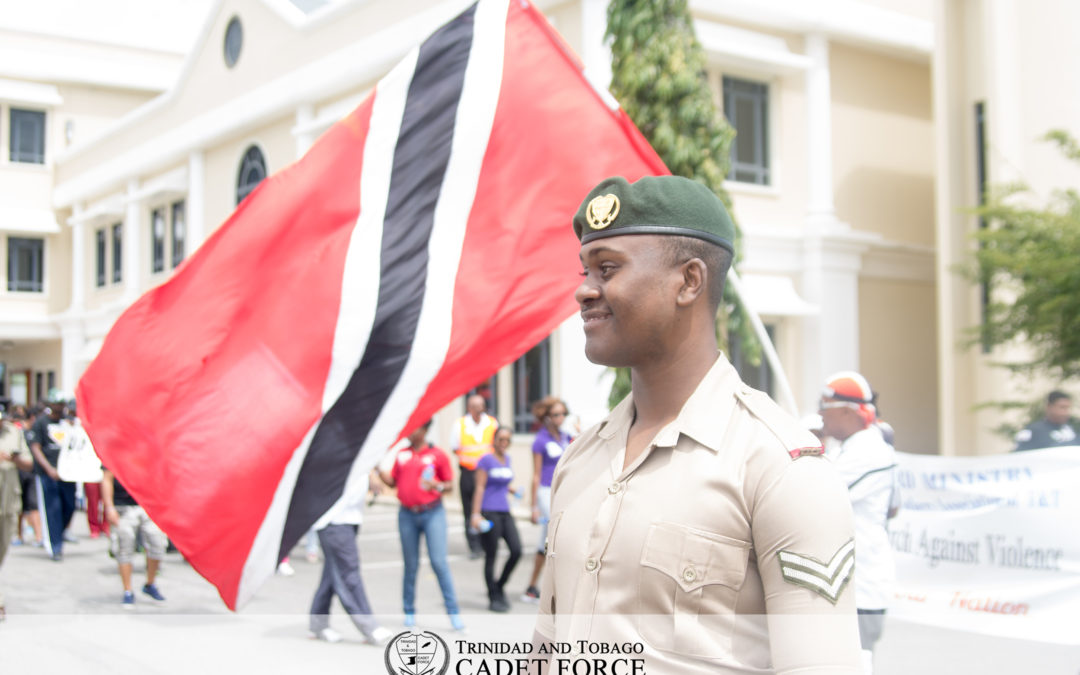
Cadet Force: Changing Lives For More Than 100 Years
When I was a little boy, my hero and elder brother Peter joined the Cadet Force (TTCF). I wanted to follow in his footsteps and it helped that I knew that my father was once a soldier. When I got to Fatima College that was the one thing I wanted to do. Join the cadets. I could never have guessed the ride I was in for.
It was hard and our unit saw several ups and downs, but the lessons I learned and the amazing friends I made helped to change my life. I joined as a shy boy, who cried when he looked around and didn’t see anyone he knew, and developed into to being bold and very driven to succeed.
I’ve met several people who have spoken about the impact this organisation has had on their lives. It was amazing, however, to hear people speak about how they saw it impacting on other people’s lives.
I recall a conversation with Prof Winston Suite at UWI, who told me he could look at a class of engineering students from around the Caribbean and tell who were cadets from Barbados, Jamaica, TT etc and who were not. I have heard parents address the dramatic changes to their children, boys and girls, who joined the cadet force. The stories are amazing.
Rodney Brown always tells the story that as a teen he had a choice between what he saw as two polar opposites: cadets or a gang. He chose the cadets and now he singles that one decision as the reason he is still alive. Today he can boast of having mentored countless young people through the government youth camps, is a major and a chaplain in the TTCF, and is in full-time ministry at his church, after leaving the government service.
Similarly, I recall a young man telling me that when his parents’ marriage ended and he felt there was no reason to continue living, he relied on his unit’s officer and warrant officer (adult staff) and his fellow cadets to pull him out of that dark place.
It is not that he could rely on them for suicide counselling, but while he never let anyone know what was happening in his birth family, he substituted his adopted Cadet Force family and found the encouragement and strength to continue.
His strongest words to me were that when he was taught to overcome the obstacles in front of him in training, his officer was (inadvertently) speaking to his emotional and psychological issues. I must add that we had this conversation at his store, a well-known mobile phone store. A young person enters the Cadet Force most times at the age of 11 or 12 years old at the beginning of their secondary school career. Within a year, as they learn military type subjects, they are subjected to lessons which build confidence, initiative and leadership. By the age of 13, many of them are capable of leading and mentoring 30 or more of their peers.
By 17, they can lead 100 peers. This is no idle boast as by 17 some of them actually do lead 100 young people as a company sergeant major.
Cadets go on to be leaders wherever they go. The tested programme of developing strong citizens by using “military methods” rings true to me and countless others who were once cadets, or who have lived or worked with us.
Since its inception in May 1910, the Cadet Force has changed the lives of innumerable people who now serve as mechanics, cooks, painters, politicians, government ministers, CEOs and military personnel. This letter is a short homage to the force — and I pray it continues for 100 more years, changing lives — and the men and women who volunteer their time to mentor our young.
Thank you for stepping forward. Thank you for your service. Thank you TTCF.
First published here in the Trinidad and Tobago Newsday on Tuesday 19th September 2017

Recent Comments